Reflections on The Saviour of the World Volume 7
Book I Poem I
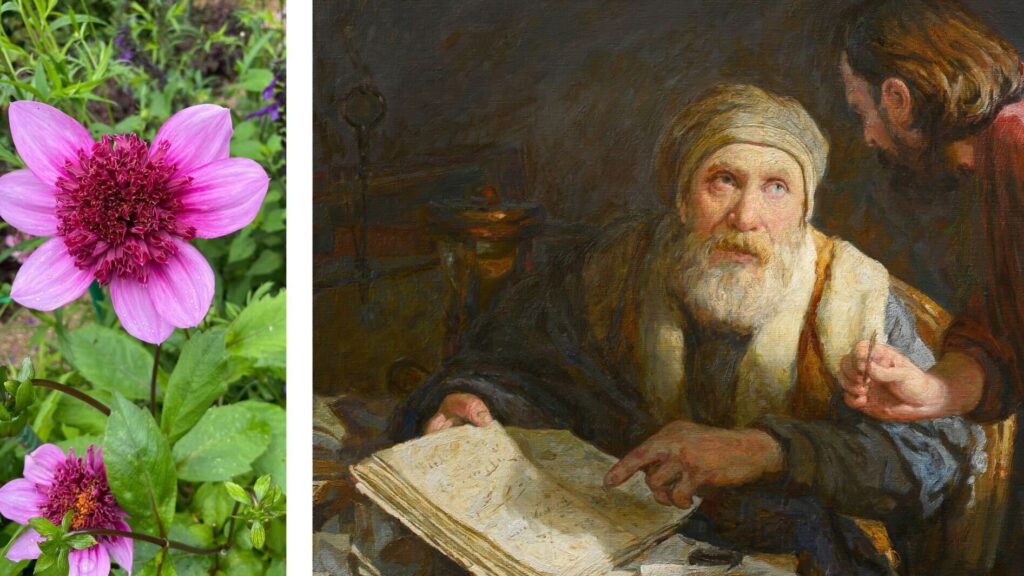
“In the Charlotte Mason Digital Collection,” I wrote, “there are several pages of handwritten papers from Mason’s early days. These may be journal entries, drafts for books, or other reflections. I find it difficult to read Mason’s handwriting, but … I was wondering if you might have time to take a look at some of these documents to see if you can read enough of each page to get a sense of what each page is about.”
The year was 2017 and I was writing to Linda Fern. Four days later she replied: “In this second document, … it appears to me that she is moving into working on another volume [of The Saviour of the World,] as the one we currently have ends with The Prodigal Son in Luke 15. Here, of course, she picks up on Luke 16 and calls it Book 1, Of Riches.”
“I think you’ve struck gold,” I replied. And indeed she had. For in this stack of barely legible pages, Linda would identify twenty poems that were intended to be published as Charlotte Mason’s seventh poetry volume. To my knowledge no one even knew of their existence, much less of their content.
Linda Fern and Antonella Greco then painstakingly analyzed each handwritten letter to transcribe Mason’s twenty last Gospel poems. And now Antonella has recorded them too. Today we present the poem that “picks up on Luke 16.” Read or listen to “The disciples learn about riches” here.
@artmiddlekauff
🖼️: Parable of the Unjust Steward by A. Mironov
Book I Poem II
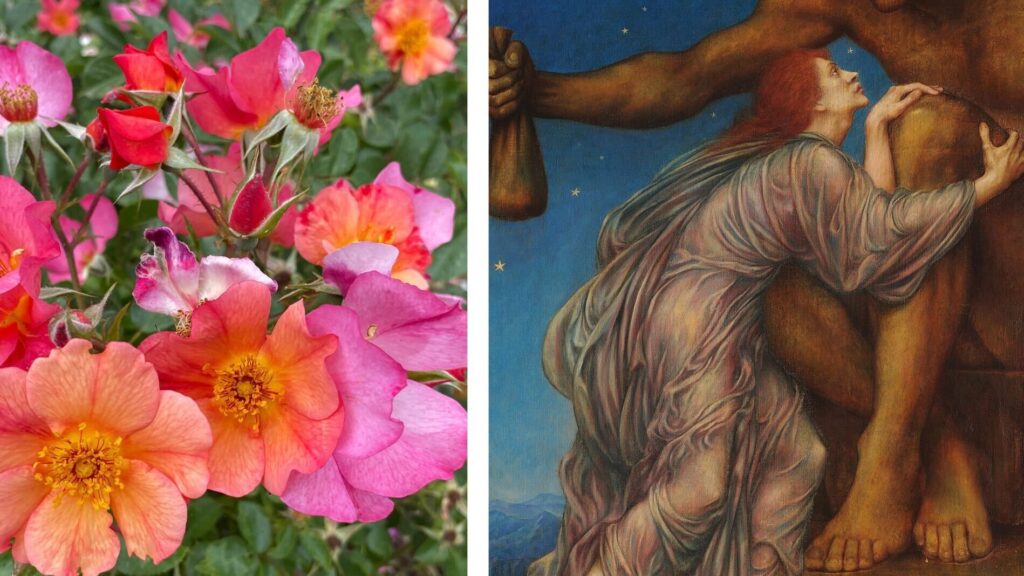
“It is a common idea,” writes J. R. Dummelow, “that virtue shades off into vice by imperceptible gradations, and that the majority of men are neither bad nor good. Our Lord pronounces absolutely that in the last resort there are only two classes of men, those who are serving God, and those who are serving the world.”
Jesus said, “No servant can serve two masters.” But what if one of those masters — money — is required to live? Charlotte Mason explores this challenging idea in her unpublished poem “How to make use of Mammon.” You can read or hear it today here.
@artmiddlekauff
🖼️: The Worship of Mammon by Evelyn De Morgan
Book I Poem III
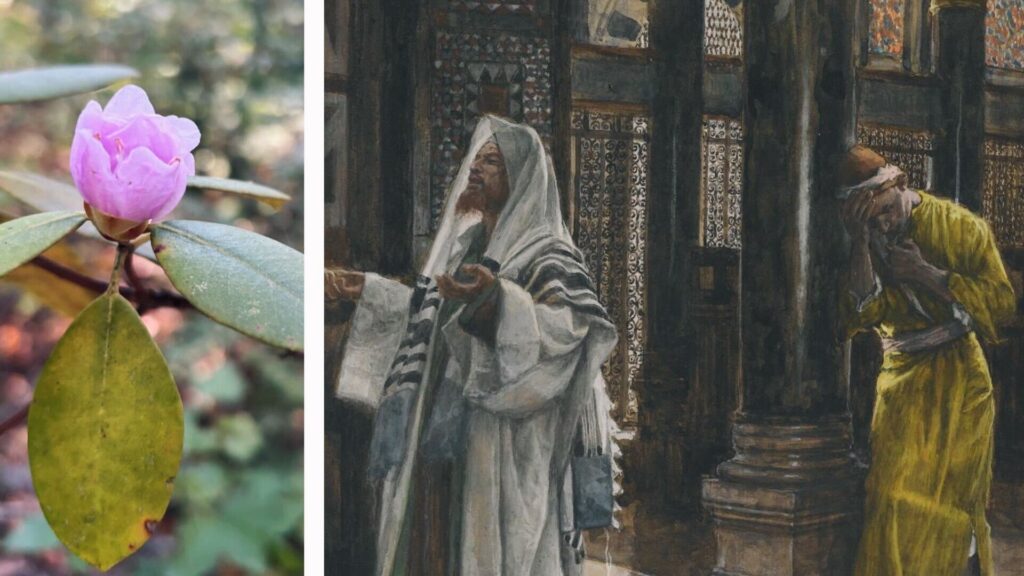
“Life, in any real sense, is the knowledge of God now,” writes Charlotte Mason; “and, without that knowledge, there cannot be the free and joyous activity of our powers, the glow of our feelings, the happy living, free from care, the open eye for all beauty, the open heart for all goodness, the responsive mind, the tender heart, the aspiring soul—which go to make up fulness of life.”
In Luke 16 the Pharisees scoffed at Christ’s teaching about riches. Charlotte Mason wrote an unpublished poem that extrapolates from this text and imagines what the conversation between Christ and the Pharisees might have been like. She understood that their interaction was about more than just money. She wrote:
What men give
Proclaim them not acceptable to God
But what they love, desire exceedingly
Nor ever let it from their thoughts remove.
It is not what we give or what we do that makes for life. It is what we love. Read or hear about the knowledge which goes to make up fulness of life. Find it here.
@artmiddlekauff
🖼️: The Pharisee and the Publican by James Tissot
Book I Poem IV
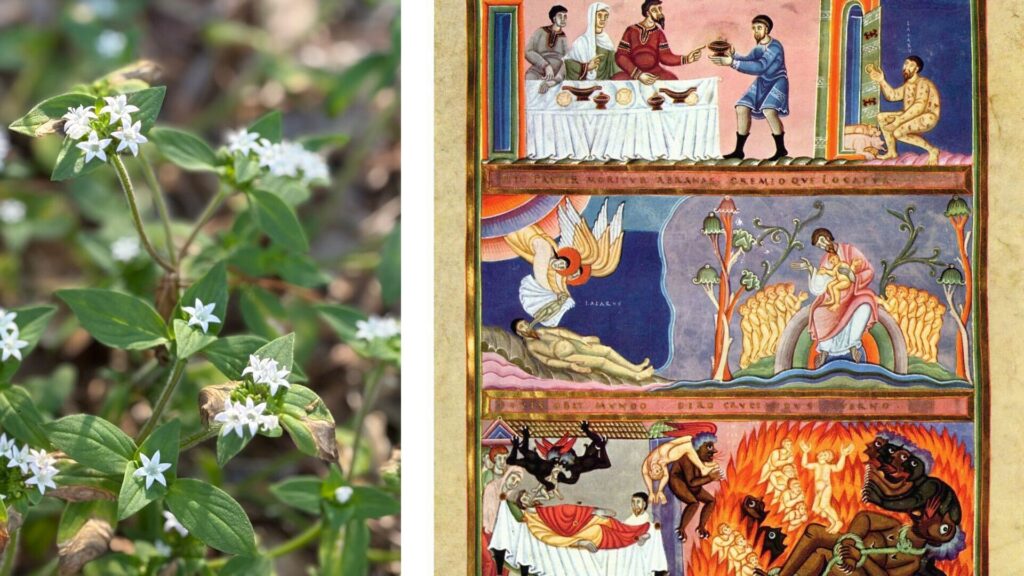
The parable of the Rich Man and Lazarus is one of the most unforgettable and chilling parables of Christ. It is unique to the Gospel of Luke, and as J. R. Dummelow indicates, it is “full of that sympathy with the poor which characterises [Luke’s] Gospel.” But sympathy with the poor is accompanied by a warning to the rich. Charlotte Mason picks up on the theme in her 16-stanza poem based on this parable. The handwritten poem has never been published, but you can read or hear our transcribed version today. Find it here.
@artmiddlekauff
🖼️: Folio 78 recto from the Codex Aureus of Echternach, Lazarus and Dives
Book I Poem V
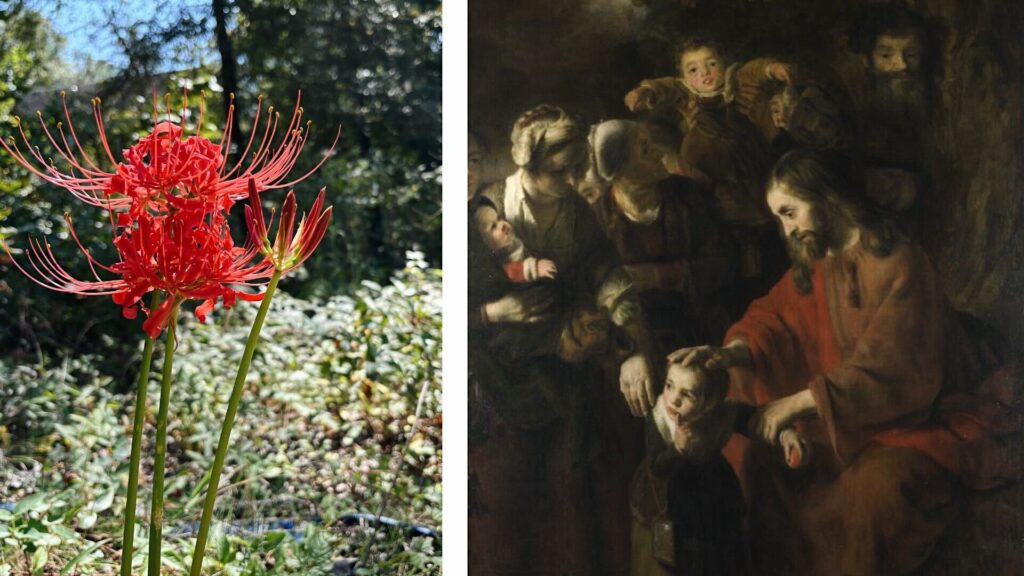
Four times in the Gospels, Jesus says “all things are possible.” Twice it is “with God” that all things are possible. Once it is “all things are possible to him who believes.” And finally, most poignantly, Jesus says, “Abba, Father, all things are possible for You.”
“All things are possible.” It’s a message of hope. It’s a message of possibility. It’s a message we all want to hear.
That’s why Luke 17:1 is so shocking. Here Jesus says, “It is Impossible.” IMpossible? How can that be?
It is a question that opens Charlotte Mason’s thoughtful and thought-provoking poem on this passage in Luke. It was never published, but you can read or hear it today here.
@artmiddlekauff
Book I Poem VI
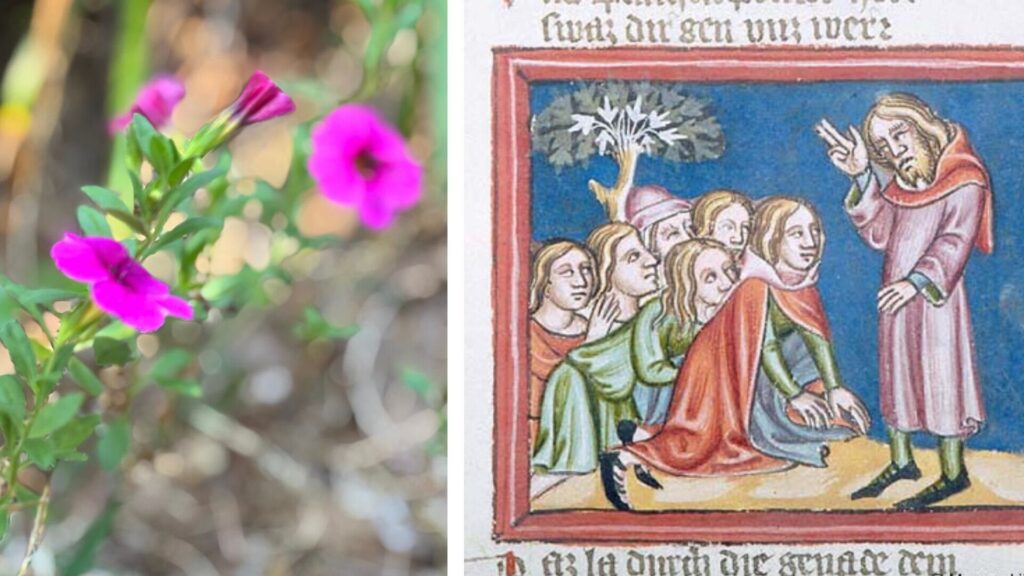
In his commentary on the Gospel of Luke, D. L. Block assigns a title to the section from 17:1 to 17:10. He calls it “False Teaching, Forgiveness, Faith and Service.” He explains: “This short section highlights four aspects of discipleship. It is hard to be certain if these four characteristics are simply listed or whether there is some relationship between them.”
Charlotte Mason was determined to pursue a “synthetic study of the life and teaching of Christ.” She believed with all her heart that “if we could only get a whole conception of Christ’s life among men, and of the philosophic method of His teaching, His own word should be fulfilled, and the Son of Man, lifted up, would draw all men unto Himself.”
Therefore it goes without saying that Charlotte Mason sought (and found) a connection between these verses in the Gospel of Luke. But she did not lift the pen of an expositor to explain the links. Rather, she sought the pen of a poet. Read or hear her poem on verses 3 and 4 and see how Mason observed the philosophic method of our Lord. Find it here.
@artmiddlekauff
🖼️: Joseph’s brothers beg forgiveness; Joseph blesses them, Illuminated manuscript, Weltchronik
Book I Poem VII
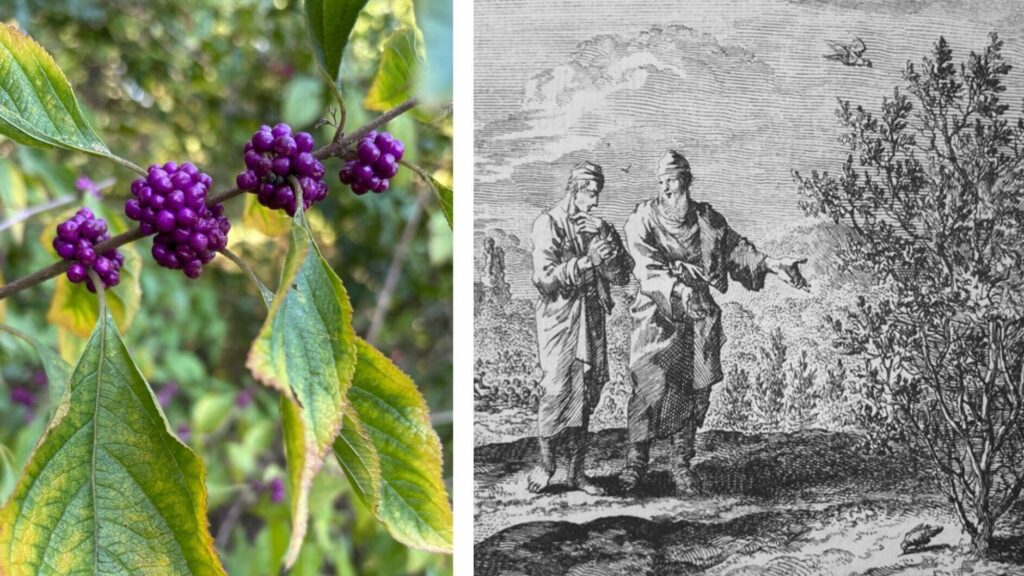
In early 2017 I had the privilege of announcing a great discovery: we had found the draft of Charlotte Mason’s seventh poetry volume. I was so excited and I wanted to share a sample with the world. I chose the poem “Increase our Faith.” I introduced it with these words:
Some things are just too good to escape the notice of divine providence. Mason wrote these beautiful verses but never brought them to the publisher. God had other plans, and now Mason’s words of beauty and power speak to us as if they were penned only yesterday. This particular poem is notable for its depth of theological insight and its dramatic implications for spiritual formation. Please read it carefully, with your heart and your mind, because this one packs a punch.
Later I selected this poem for use in workshops on Mason’s poetry. And a friend of mine who came to Christ explained to me, “I cannot think of a more divinely beautiful and elegant way to capture my story and my message than these stanzas.”
Please take time to listen to, read, and reflect on this timeless piece. Find it here.
@artmiddlekauff
🖼️: Parable of the Mustard Seed by Jan Luyken
Book I Poem VIII
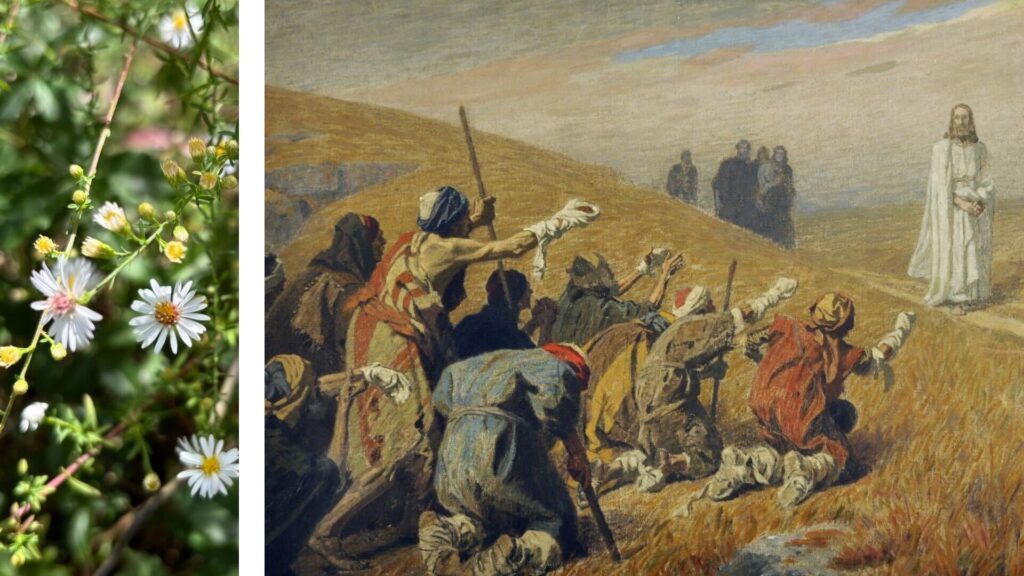
One of the most inspiring chapters in Book I of Ourselves is Chapter 7, on gratitude. “No other Lord of the Heart should do more to guide us into joyous and happy living than Gratitude,” writes Miss Mason. The chapter reminds us of what we should be thankful for, and it reminds me of how we should express our thanks.
What is the source of Mason’s counsel on gratitude? We find it in her poem about the ten lepers who were cleansed. She opens with a quotation from Wordsworth, and then she expresses her own thoughts on verse. It is challenging in an inspiring way, and invites us to the “joyous and happy living” of gratitude. Find it here.
@artmiddlekauff
🖼️: Christ and the Lepers by Gebhard Fugel
Book I Poem IX
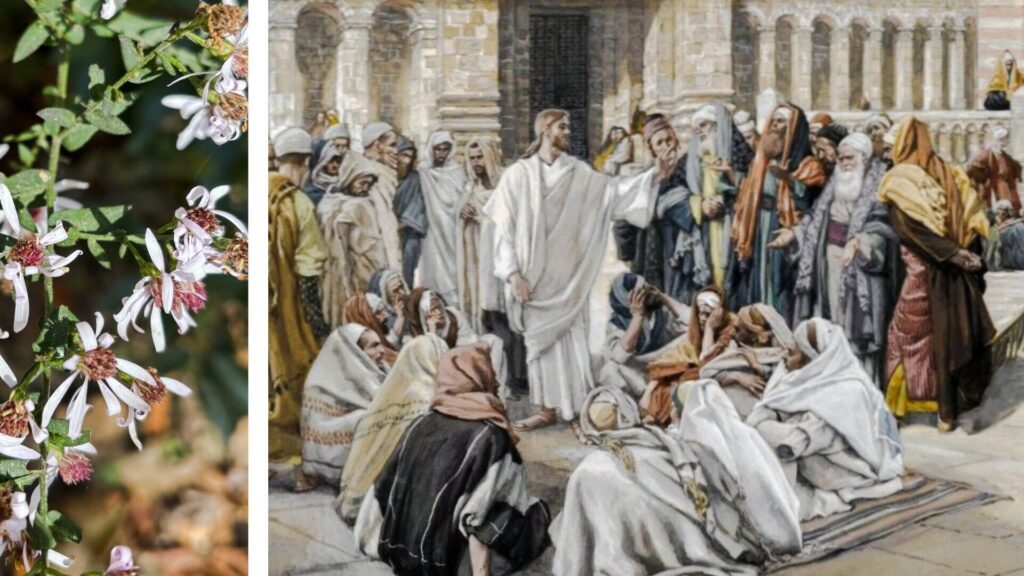
In Luke 17:20–21 we read, “Now when He was asked by the Pharisees when the kingdom of God would come, He answered them and said, ‘The kingdom of God does not come with observation; nor will they say, “See here!” or “See there!” For indeed, the kingdom of God is within you.’”
D. L. Bock states that the ending phrase of this passage “is one of the most discussed in Luke’s Gospel. It is one of the few statements of Jesus that puts the kingdom in the present. In fact, so unprecedented is this statement that some argue the idea is really futuristic.”
In the discussions about this verse, many interpretations have been offered. Charlotte Mason offers her own in her poem “Lo, here! or, There!” In beautiful verse she assures us that we need not run after signs and wonders to find the Kingdom of God. Instead, she promises that we can find it now. Read or hear her poem here.
@artmiddlekauff
🖼️: The Pharisees Question Jesus by James Tissot
Book I Poem X
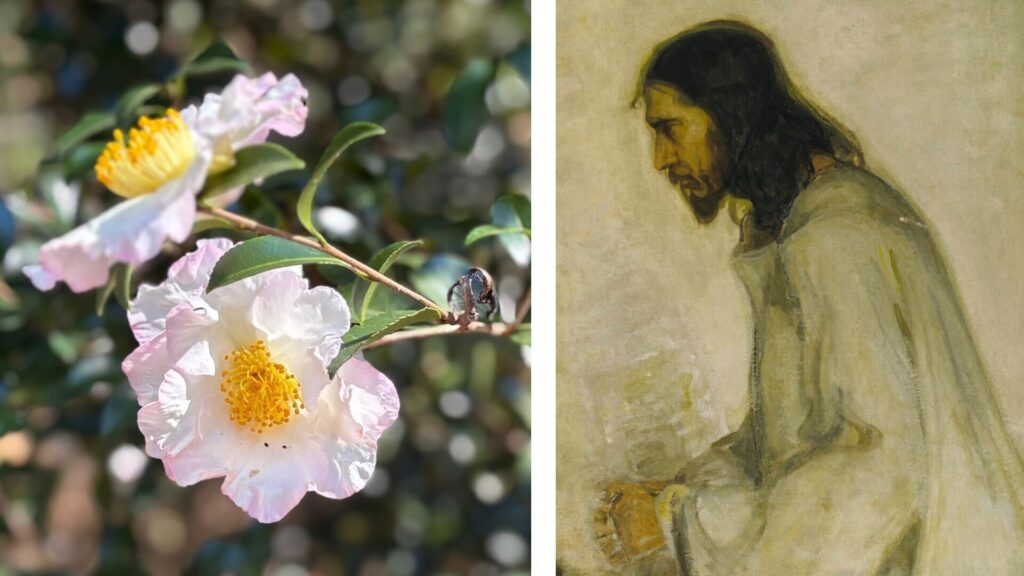
I recently saw a poetry contest calling for original compositions with a very specific form: a stanza with six lines, where the rhyme scheme is abcccb and the metrical pattern is iambic as follows:
Lines 1, 3, 4, and 5: tetrameter
Lines 2 and 6: trimeter
This form was used in the single-stanza 1871 “The Centipede’s Dilemma” by Katherine Craster and the six-stanza 1913 “Ah, Are You Digging On My Grave?” by Thomas Hardy. In both poems, the interaction of rhyme and meter creates a sense of anticipation and resolution as each stanza proceeds.
Charlotte Mason’s poem “The Kingdom of God” was written sometime after 1914 and also contains six stanzas. Each stanza follows a form very similar to that employed by Craster and Hardy. Surprisingly, however, the first line in each of Mason’s stanzas is only 7 syllables.
Why this variation? It was surely by design; in the second stanza, she even contracts “proclaimest” to “proclaim’st” to preserve the unusual 7-syllable meter. I personally feel that it has the effect of increasing the sense of anticipation from the opening of each stanza to its end.
The poem is a powerful example of how form can enhance meaning and impact in a poem. The motif of question and answer develops across six stanzas and leads the reader to contemplation and wonder. Experience it yourself here.
@artmiddlekauff
🖼️: The Savior by Henry Ossawa Tanner
Book I Poem XI
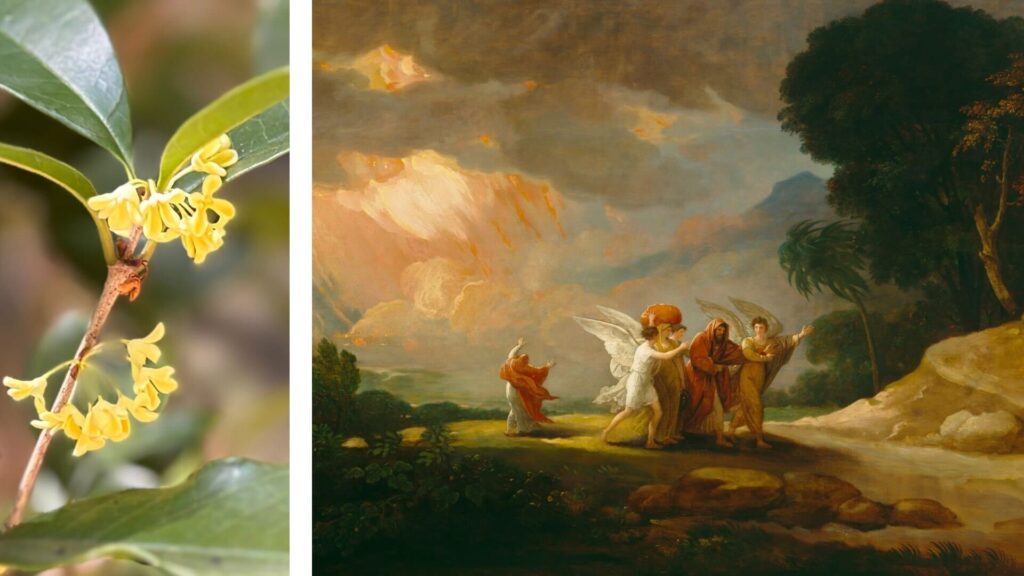
In a dramatic passage in Book II of Ourselves, Charlotte Mason writes:
Therefore, Christ ate with publicans and sinners, and pronounced woes against the respectable classes; because the sinners might still have a Will which might rise, however weakly, at the impact of a great thought, at the call to a life outside of themselves. The men at whom no one could point a finger were tied and bound in self, and were incapable of the great act of will implied in, “Choose ye this day whom ye will serve.”
There are but two services open to men—that which has self as the end and centre, and that which has God (and, by consequence, man) for its object.
In her poem on the Second Coming of Christ, Mason portrays our Lord as the judge of these two kinds of men:
A gulf is fixed ’twixt those and these,—
The men who seek their life,—their ease,
Their comfort, wealth, high place,—“for all
Things which concern the Spirit’s call,
All these shall lose the life they seek;
But there be men of spirit meek
Who give their lives, an offering free.
Find how ideas in Mason’s Ourselves are illuminated by awesome words in the Gospel of Christ. Read or hear the poem here.
@artmiddlekauff
Book I Poem XII
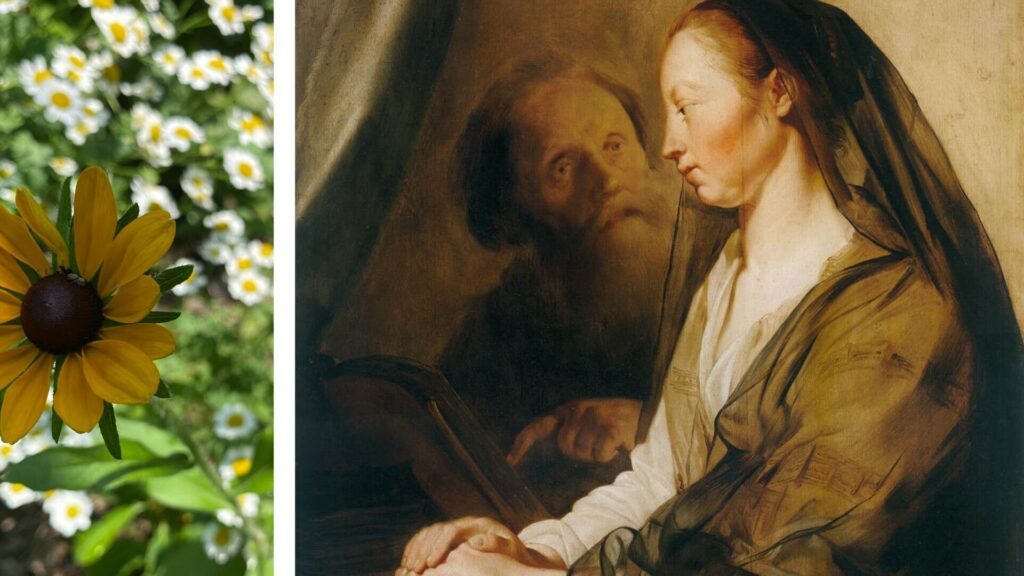
The parable of the unjust judge is unique to the Gospel of Luke. D. L. Bock comments on its significance:
To the theologically sophisticated, prayer can sometimes seem to be an odd spiritual practice. If God is all-knowing, sovereign and all-caring, then why bother him with our requests? Interestingly, Luke’s portrait of Jesus highlights prayer. He prays before receiving the Spirit (3:21–22), all-night prayer precedes the selecting the Twelve (6:12), and two parables focus on prayer (11:5–13; 18:1–8). The answer to the dilemma of prayer is that it is not intended to do something for God, but for us. It is one of the mechanisms of relationship that God gives to his children to be in touch with him. God may not need prayer, but we do.
Charlotte Mason’s poetic reflection on this parable also highlights the importance of prayer. But she goes beyond this, finding in the culmination of this passage a view to the cross. Read or hear her poem here.
@artmiddlekauff
🖼️: The Parable of the Unjust Judge by Pieter de Grebber
Book I Poem XIII
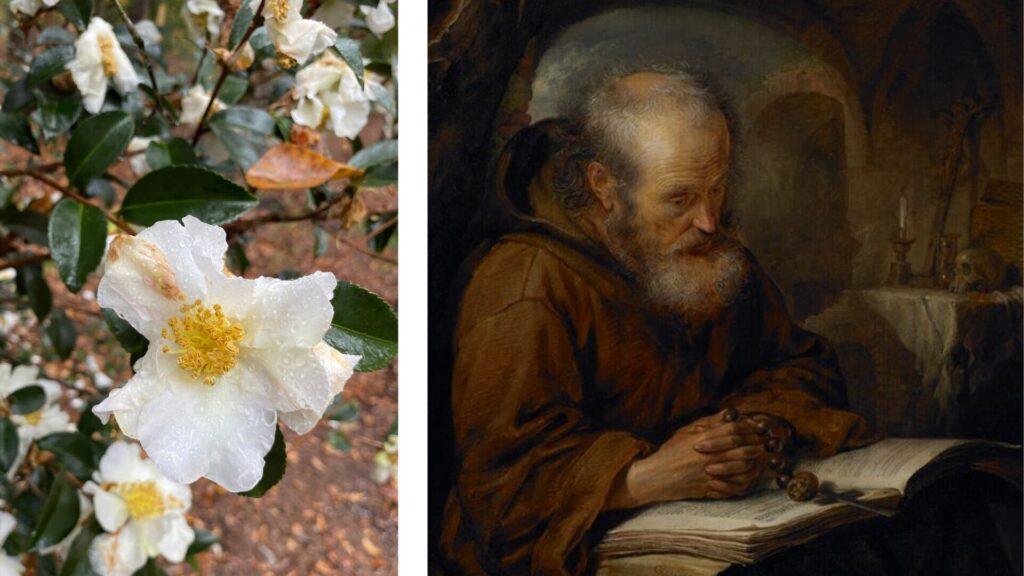
Stephanie B. Crowder writes:
It is God who defines and orchestrates justice, or fairness, according to Luke. Whether the injustice comes from human-to-human misdeeds or whether it emanates from personal wrong, God justifies or makes right so that good may be done. Furthermore, in each instance Luke shows how important it is that people initiate the call for justice. When we call, God answers. When we cry out, God responds. When we beg and implore God to come and see about us, God comes to make it all right.
Sometimes it can be hard to initiate that call. Charlotte Mason imagined it would be so for the disciples. Read or hear her poem “The Disciples Ponder” here.
@artmiddlekauff
Book I Poem XIV
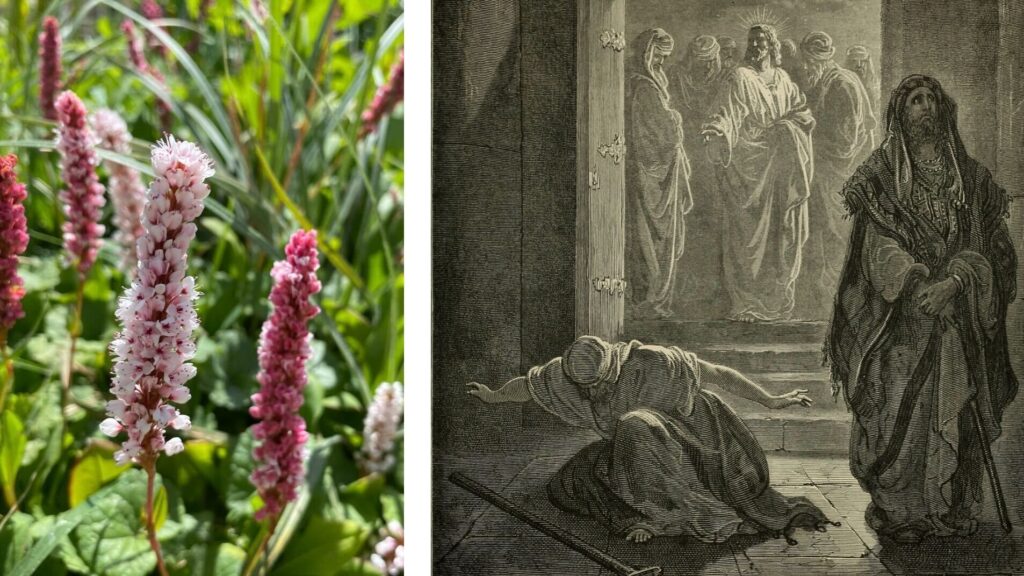
Perhaps my favorite of all the parables is that of the Pharisee and the Tax Collector. It’s hard to believe that so much truth could be expressed in so short a story. My thoughts return to it again and again when I contemplate my place before God.
I was interested then to see what Charlotte Mason would say about these verses. I was stunned. She made a parable from a parable. Beautiful, compelling, and vivid, it struck me with force. A spiritual truth clothed in the simplest of words, be sure to check it out here.
@artmiddlekauff
Book I Poem XV
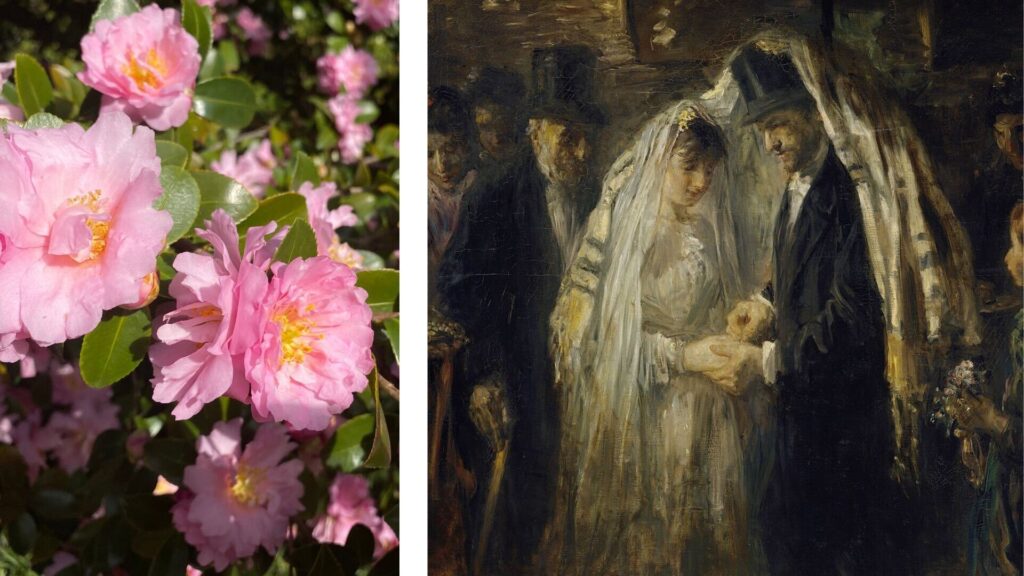
“‘Behold, I make all new,’ saith Christ, the Lord,” writes Charlotte Mason. And she understands this to include a restoration to “primal law.” And what law is more primal than that of Genesis 2:24: “Therefore a man shall leave his father and mother and be joined to his wife, and they shall become one flesh”?
In her poem “Of Marriage and Divorce,” Mason contemplates what it means for this law to be restored and made new. Read or hear it here.
@artmiddlekauff
🖼️: A Jewish Wedding by Jozef Israëls
Book I Poem XVI
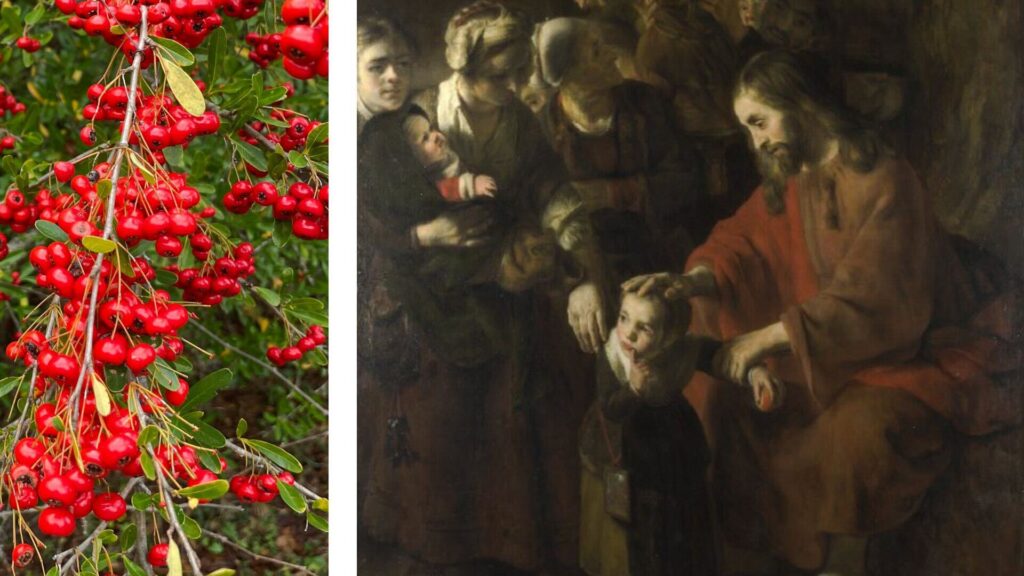
“It may surprise parents who have not given much attention to the subject to discover also a code of education in the Gospels, expressly laid down by Christ.”
Few sentences have impacted me more in my decades of study of Charlotte Mason’s words. For here we have a “captain idea”: that we see our children the way Christ sees them.
“The most fatal way of despising the child falls under the third educational law of the Gospels; it is to overlook and make light of his natural relationship with Almighty God. ‘Suffer the little children to come unto Me,’ says the Saviour, as if that were the natural thing for the children to do, the thing they do when they are not hindered by their elders.”
In these timeless and heart-rending words, Mason points us to Matthew 19. She vividly urges us to set no hindrances in the path of our daughters and sons.
Sadly, in her six volumes of published poetry on the Gospels of Christ, she did not reach Matthew 19. We never knew what poetic meditation she would have on this wonderful passage.
Until handwritten pages were found in a file. On one of which was Mason’s poem on the third educational law of the Gospels: Hinder not. The poem was discovered so that it could be read. See or hear it here.
@artmiddlekauff
🖼️: Christ Blessing the Children by Nicolaes Maes
Book I Poem XVII
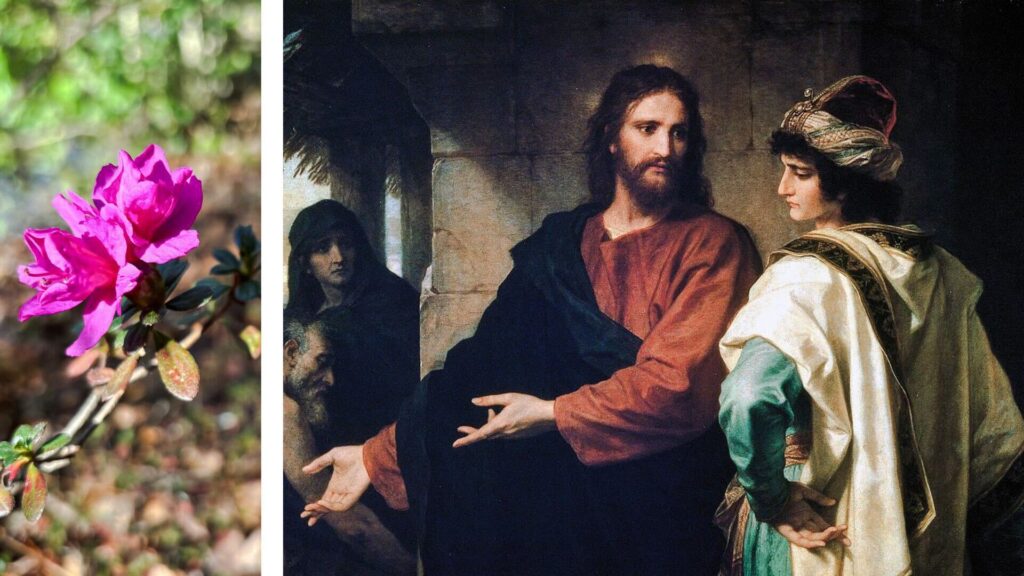
When presenting her motivation for writing poems about the life of Christ, Charlotte Mason explained:
Again, the supreme moment of a very large number of lives—that in which a person is brought face to face with Christ—comes before us with great vividness in the gospel narratives; and it is possible to treat what we call dramatic situations with more force, and, at the same time, more reticence, in verse than in prose.
One person who was brought face to face with Christ was a rich young ruler, described in the Gospels of Matthew, Mark, and Luke. In that dramatic situation, the man was “discovered to himself, aware for the first time.” Mason wanted to treat that situation, and poetry would do better than prose. Find out for yourself here.
@artmiddlekauff
🖼️: Christ and the Rich Young Ruler by Heinrich Hofmann
Book I Poem XVIII
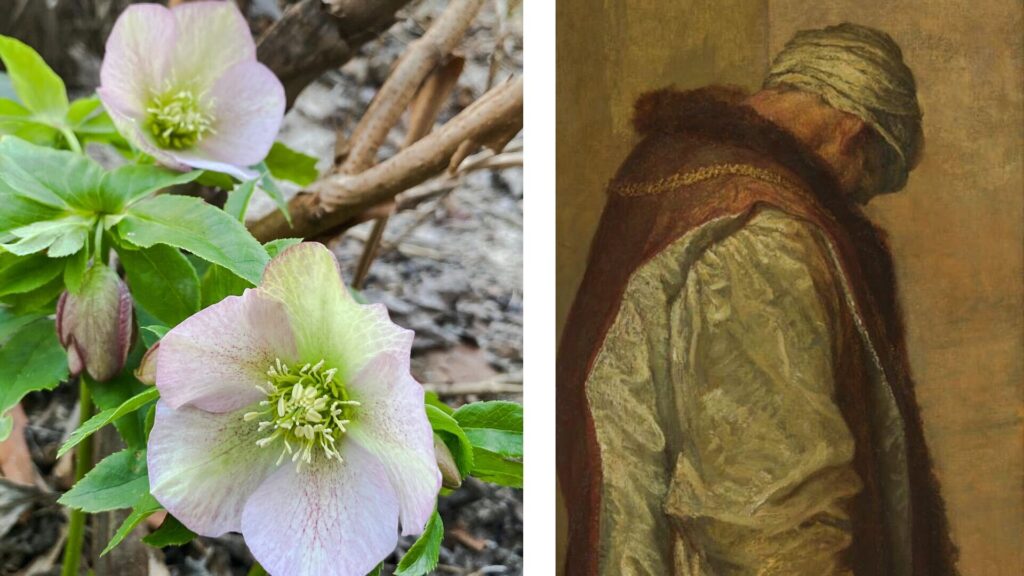
The Gospel of Luke tells about a ruler who came to Jesus. This young man was very rich, but he went away sorrowful.
In his book Pastor Pastorum, Henry Latham contemplates the scene: “The Apostles are ‘astonished exceedingly’ at our Lord’s severity, they had perhaps been pleased at the prospect of the accession to their community of a man who was rich and high in station and well spoken of on all sides.”
This explanation of the disciples’ reaction was new to me. But in Charlotte Mason’s poetic reflection on the passage, she too considers that the disciples may have thought that a rich young ruler would have been a prestigious addition to their company.
Latham also offers a thoughtful interpretation of our Lord’s response: “From this interview our Lord draws the moral, ‘How hardly shall they that have riches enter into the Kingdom of God;’ this is not a denunciation of the rich but rather a commiseration of them, owing to the peculiar and insidious temptations to which they are unceasingly exposed.”
Mason too does not wish to condemn the rich but rather show compassion to all persons who are created for eternal life. Read or hear her poem here.
@artmiddlekauff
🖼️: For He Had Great Possessions by George Frederic Watts
Book I Poem XIX
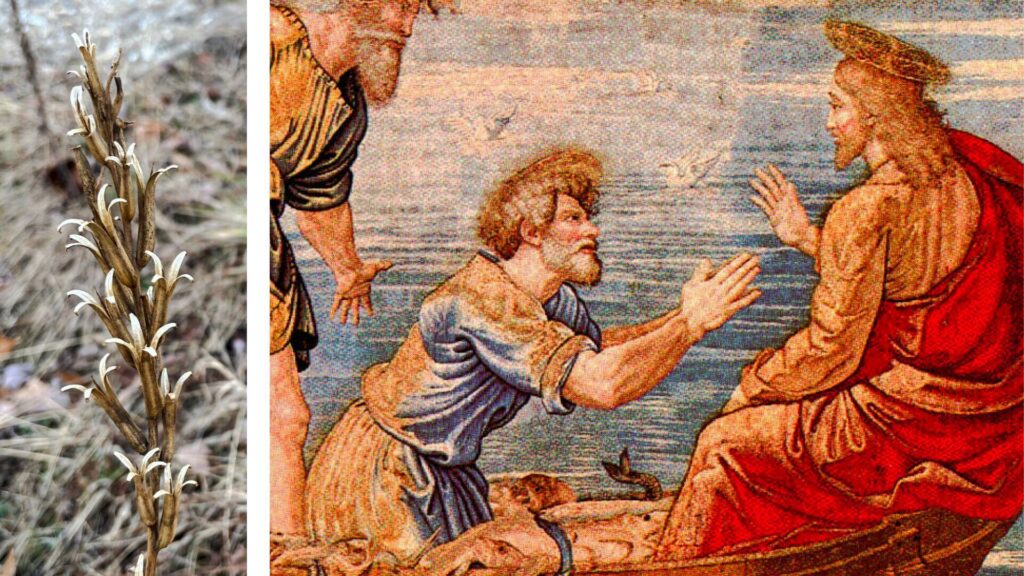
The disciples watch as the Rich Young Ruler walks away, unable to obey Christ’s command. D. L. Bock observes what happens next:
Now the rapid-fire dialogue reaches a high point. Peter remarks, probably seeking reassurance, that the disciples have done what Jesus has asked of the rich man. They have left home to follow him.
Charlotte Mason imagines this moment. What was Peter thinking when he said, “See, we have left all and followed You”? Read or hear Charlotte Mason’s poetic commentary on a single verse. Find it here.
@artmiddlekauff
Book I Poem XX
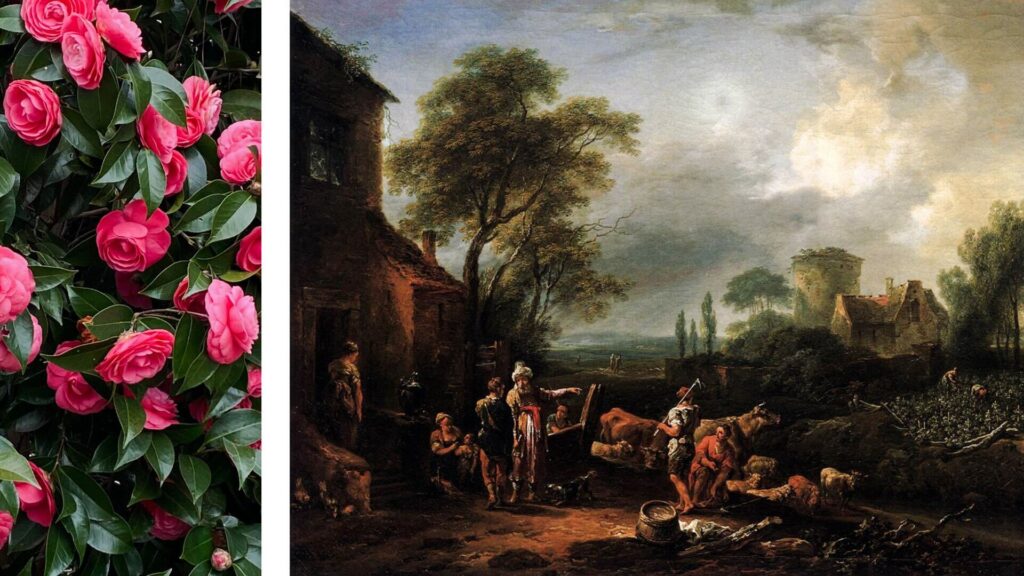
The final poem that Charlotte Mason wrote for “The Saviour of the World” was (as far as we know) a meditation on the parable of the workers in the vineyard. Mason’s vision had been to write eight volumes of poetry covering the entire Gospel History. She made it as far as Matthew 20:16 in her incomplete seventh volume. I wish she had made it farther, but I find in this a sobering reminder that our time to work is limited. Her final poem is fitting:
He found you idle in the market-place,
Early or late, what mattered to His grace?
He bade you to His vineyard, gave employ,
And named the wages each one should enjoy
Charlotte Mason was bidden to Christ’s vineyard and given an employ. Perhaps an earlier start would have meant more poems. But what does that matter to His grace? I am thankful for the poems we do have, and I hope that you will use them in your homeschool and in your devotional life, to the glory of God in Christ.
Find her final poem here.
@artmiddlekauff
🖼️: Parable of the Workers in the Vineyard by Johann Christian Brand